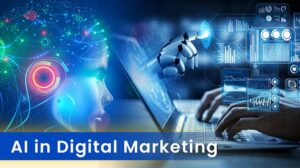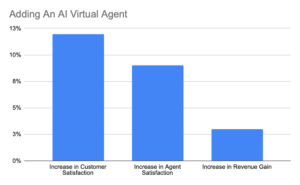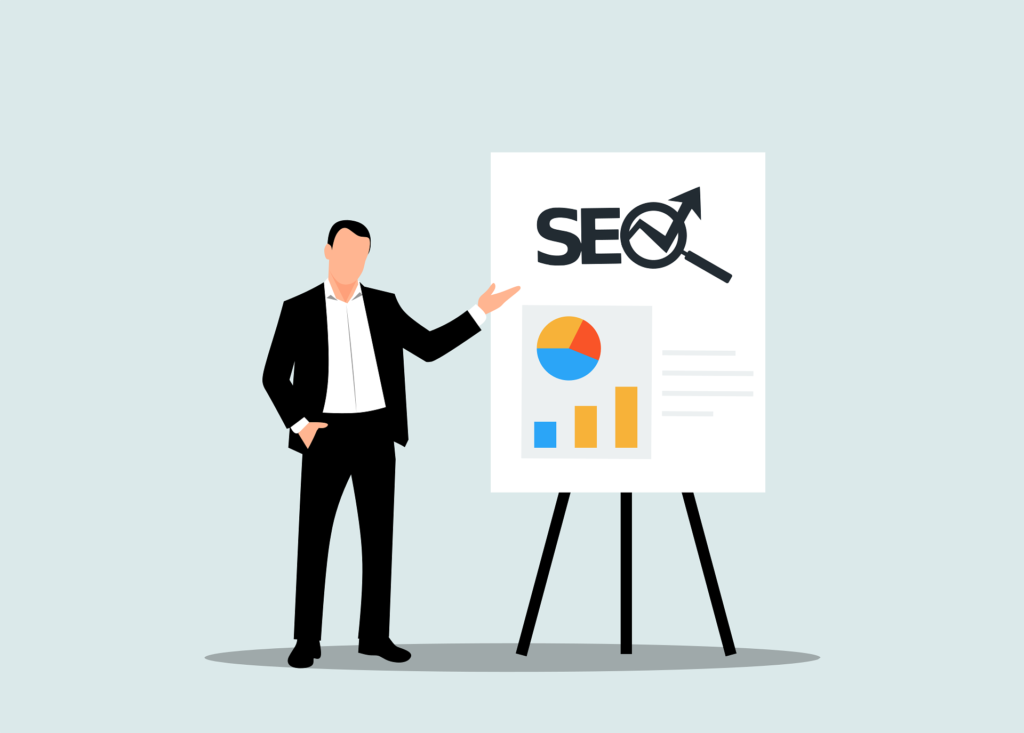
Artificial Intelligence (AI) is one powerful tool that many brands are using to improve their digital marketing campaigns. But how does it work, and how can it be integrated into existing digital marketing strategies? We’ll answer these questions and more as we explore the integration of AI into your current strategy.
Understanding AI in Digital Marketing
Artificial intelligence (AI) is the umbrella term for a variety of tools and methods that allow computers to mimic human intellect.
66% of businesses are using or planning to use AI for their sustainability goals (source). Artificial Intelligence (AI) enables marketers to analyze large volumes of data, find patterns, and make data-driven decisions.
Marketers who embrace AI may revolutionize their approaches by improving personalization and automating procedures, which will eventually increase return on investment and help them remain competitive in the ever-changing digital space.
Benefits Of AI For Digital Marketing Agencies
More than 80% of marketers worldwide integrate some form of AI into their online marketing activities (Source). For digital marketing agencies, AI offers numerous benefits, including:
- Improved efficiency and productivity.
- Enhanced targeting and segmentation capabilities.
- Personalized content creation at scale.
- Streamlined campaign management and optimization
- Enhanced customer engagement and satisfaction.
- Access to real-time insights and predictive analytics.
By incorporating AI into their workflows and strategies, brands can deliver better results for their clients, drive growth, and gain a competitive edge in the industry
Implementing AI In Marketing Strategies

Here are some AI practices that can supercharge your digital marketing strategy:
1. Personalized Customer Experience
AI algorithms empower marketers to craft highly personalized experiences for their customers by analyzing their preferences, behavior, and demographics.
By leveraging machine learning techniques, AI enables the creation of tailored content, recommendations, and offers, which will supercharge your digital marketing efforts. This level of personalization ensures that each customer interaction is relevant and engaging, ultimately enhancing the overall customer experience which facilitates brand loyalty.
Through AI-powered analytics, marketers can gain deeper insights into customer preferences and behaviors, allowing them to continuously refine and optimize their marketing strategies to meet evolving consumer needs.
2. Predictive Analytics
AI algorithms can analyze vast amounts of historical data to uncover patterns, trends, and correlations that may not be apparent to human analysts.
By leveraging machine learning techniques, predictive analytics models can forecast future outcomes with remarkable accuracy, facilitating growth-hacking initiatives in digital marketing. For digital marketers, this means having the ability to anticipate shifts in consumer behavior, identify emerging market trends, and adapt their strategies accordingly.
3. Enhanced Targeting and Segmentation
AI-driven targeting and segmentation techniques enable marketers to divide their audience into highly specific groups based on a wide range of criteria, including demographics, psychographics, online behavior, and purchasing history. This fuels marketing automation.
Unlike traditional segmentation methods, which often rely on broad categories and assumptions, AI algorithms can analyze complex data sets to identify nuanced segments and micro-segments within the target audience. This granular approach allows marketers to deliver personalized content, offers, and recommendations that resonate with each segment’s unique preferences and needs.
By tailoring their messaging to specific audience segments, marketers can significantly increase relevance and engagement, leading to higher conversion rates and ROI.
4. Automation and Optimization
AI-powered automation tools streamline and optimize various aspects of the digital marketing process, from campaign management and content distribution to ad targeting and performance tracking.
Furthermore, by automating repetitive tasks and workflows, such as email scheduling, social media posting, and ad bidding, marketers can save time and resources while ensuring consistent and timely execution.
Moreover, AI algorithms continuously analyze campaign performance data in real time, identifying trends, patterns, and opportunities for optimization, driving marketing automation.
Whether it’s adjusting ad targeting parameters, reallocating budgets, or fine-tuning messaging based on audience feedback, AI enables marketers to make data-driven decisions that maximize the effectiveness and efficiency of their campaigns.
5. Content Creation and Personalization
AI-powered content generation tools leverage natural language processing (NLP) and machine learning algorithms to create high-quality, engaging content at scale.
These tools can generate a wide range of content types, including articles, blog posts, product descriptions, social media updates, and email newsletters, based on predefined criteria and templates.
By analyzing data on audience preferences, trends, and online behavior, AI algorithms can generate personalized content that resonates with each recipient, enhancing AI personalization marketing.

6. Chatbots and Virtual Assistants
AI-powered chatbots and virtual assistants are revolutionizing customer service and support by providing instant and personalized assistance to users across various channels, including websites, mobile apps, and social media platforms.
These AI-driven conversational interfaces use natural language understanding (NLU) and machine learning algorithms to interpret user inquiries, provide relevant information, and resolve issues in real-time.
Automating routine interactions and inquiries, chatbots and virtual assistants will improve response times, reduce customer wait times, and enhance overall satisfaction. Moreover, AI-powered chatbots can learn and adapt over time, becoming more effective and efficient at handling complex queries and tasks.
7. Real-Time Insights and Reporting
AI-powered analytics platforms enable marketers to gain actionable insights into campaign performance, customer behavior, and market trends in real-time, driving digital marketing growth hacking initiatives.
These platforms aggregate and analyze data from multiple sources, including websites, social media channels, email campaigns, and online transactions, to provide comprehensive insight into key metrics and KPIs.
Marketers can quickly identify trends, anomalies, and areas for improvement by visualizing data through intuitive dashboards and reports, allowing them to make informed decisions and adjustments on the go.
By harnessing real-time insights and predictive analytics, marketers can optimize their strategies, allocate resources more effectively, and drive better business outcomes.
Examples of Successful AI Marketing Campaigns
- Netflix: Utilizes AI algorithms to analyze user viewing behavior and preferences to recommend personalized content.
- Spotify: Leverages AI-powered music recommendation algorithms to curate personalized playlists for users based on their listening history.
- Amazon: Uses AI-driven product recommendation engines to suggest relevant items to customers based on their browsing and purchasing history.
- Coca-Cola: Implemented an AI-powered chatbot on Facebook Messenger to engage with customers, answer inquiries, and drive brand awareness.
- Sephora: Utilizes AI-powered virtual assistant chatbots to provide personalized beauty recommendations and makeup tips to customers.
How to Measure the Success of AI Marketing Initiatives
- Track Key Performance Indicators (KPIs): Monitor metrics such as conversion rates, engagement levels, customer satisfaction scores, and ROI to measure the effectiveness of AI-driven initiatives.
- Conduct A/B testing
Conclusion
The adoption of artificial intelligence (AI) represents a transformative opportunity for businesses to supercharge their digital marketing strategies and drive growth. From enhancing personalization and customer engagement to optimizing campaigns and streamlining processes, AI empowers marketers to deliver exceptional experiences and achieve measurable results.
By strategically embracing AI, businesses can unlock untapped potential, outpace competitors, and thrive in the digital age.


Fantastic beat ! I would like to apprentice while you amend your web site, how could i subscribe for a blog site? The account helped me a acceptable deal. I had been a little bit acquainted of this your broadcast offered bright clear concept